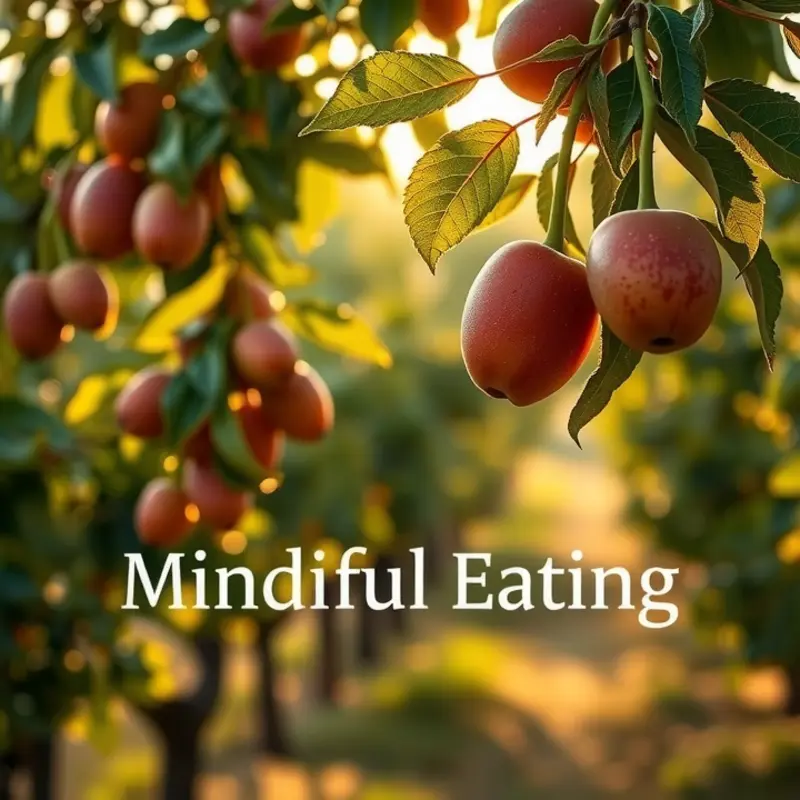Chronic stress can significantly influence our eating habits and emotional well-being. Practicing mindful eating offers a path toward peace, helping us establish a healthier relationship with food amidst life’s challenges. By learning to savor our meals and tune into our body’s needs, we create space for both healing and joy. Let’s explore how integrating mindfulness into our eating practices can support emotional health during stressful times.
Understanding the Connection: Stress and Eating Habits

Chronic stress activates a cascade of physiological responses that influence our eating habits. The body’s primary stress response involves the release of cortisol, often referred to as the ‘stress hormone.’ Elevated cortisol levels can increase appetite and lead to cravings for specific types of foods, particularly those high in sugars and fats. These ‘comfort foods’ provide a momentary sense of relief by triggering the brain’s reward centers, resulting in a temporary mood lift.
The brain closely monitors our emotional state and guides us towards behaviors that are perceived to alleviate stress. In stressful situations, the preference for sugary and fatty foods isn’t simply due to their taste. These foods can increase the levels of serotonin, a neurotransmitter associated with well-being and happiness. This is why stress often drives individuals to seek foods that offer a quick serotonin boost, creating a feedback loop that reinforces stress-eating patterns.
However, the reliance on comfort foods can have detrimental effects on emotional health in the long term. While the immediate sense of pleasure and comfort is undeniable, repeated indulgence can lead to negative health outcomes, such as weight gain and metabolic disorders, exacerbating the cycle of stress and food dependency. Moreover, guilt and anxiety over these eating choices can further compound emotional distress, creating a vicious cycle.
Understanding the brain-food connection can help develop healthier eating habits during times of stress. Being consciously aware of the body’s and mind’s responses to stress can guide more mindful eating practices. Mindful eating techniques encourage individuals to focus on the sensory experience of eating, fostering a more positive relationship with food.
By incorporating practices such as focusing on the taste, texture, and aroma of food, individuals can slow down the eating process. This helps distinguish between physical hunger and emotional cravings. Mindful eating urges us to savor each bite, recognize personal triggers, and make more intentional food choices.
Moreover, exploring healthier alternatives to traditional comfort foods can mitigate stress-related eating without negatively impacting emotional or physical health. Nutrient-dense foods like whole grains, lean proteins, nuts, and seeds can provide the necessary comfort while also improving mood and energy levels. The integration of these foods into one’s diet reduces the temptation of those detrimental ‘quick fixes.’
Chronic stress and altered eating habits are intimately linked, each influencing the other in profound ways. By understanding this connection, individuals can transition from reactionary eating to thoughtful nourishment. This awareness not only helps manage stress in healthier ways but also promotes overall emotional well-being.
Nurturing Mindfulness: Practical Strategies for Mindful Eating

Implementing mindful eating habits can transform the challenging landscape of chronic stress into a more manageable experience. At the heart of mindful eating is a gentle, reflective approach to consuming food, allowing individuals to savor each morsel with intent. A fundamental component of this practice is portion control. By consciously serving smaller amounts, one can focus on truly enjoying the taste and texture of each bite. Smaller portions can prevent overindulgence and heighten appreciation for every flavor.
Learning to identify emotional triggers related to eating is also crucial. Often, stress leads individuals to eat unconsciously, seeking comfort in food rather than nourishment. Paying attention to emotions before, during, and after meals can provide insights into these triggers. Are you reaching for a snack out of hunger or stress? This awareness allows you to address underlying emotions without turning to food as a coping mechanism.
Part of cultivating mindful eating involves setting the right environment. Creating a serene setting can significantly impact the way food is perceived and appreciated. Dimming the lights, playing soft music, or eating outside in nature can transform a meal into a peaceful, sensory experience. The goal is to engage all senses in the eating process, encouraging a fuller, more reflective experience.
Incorporate mindful eating prompts to cultivate a more consistent practice. These prompts can involve asking yourself thoughtful questions: “What flavors stand out in this dish?” “How does the food’s texture feel?” or “Am I savoring this bite fully or rushing to the next?” These questions serve as anchors to bring your focus back to the present moment. They encourage a deeper connection with the meal and a genuine appreciation of its subtleties.
For those interested in sustainable practices, consider how lowered food waste contributes to mindful eating. Reflecting on food’s journey from farm to table fosters gratitude and respect for the nutrition provided. Explore strategies for reducing waste and enhancing kitchen sustainability to complement mindful eating habits.
Bringing mindfulness into the dining experience helps ease the mental cacophony created by everyday stressors. By integrating these strategies, one can develop a stronger connection to both food and self, fostering emotional health with every bite. As you implement these practices, remember that mindful eating is a journey, not a destination. Each meal offers a chance to nourish not only the body but also the mind and spirit.
Final words
Incorporating mindful eating practices can create a powerful buffer against the onslaught of chronic stress. By tuning into our bodies and making intentional choices about what and how we eat, we can heal our relationship with food and nurture our emotional well-being. It’s about more than just meals; it’s a journey towards self-awareness and compassion. As you begin to explore these practices, remember that patience and consistency are essential. Each mindful bite brings you closer to a more balanced and peaceful life.







